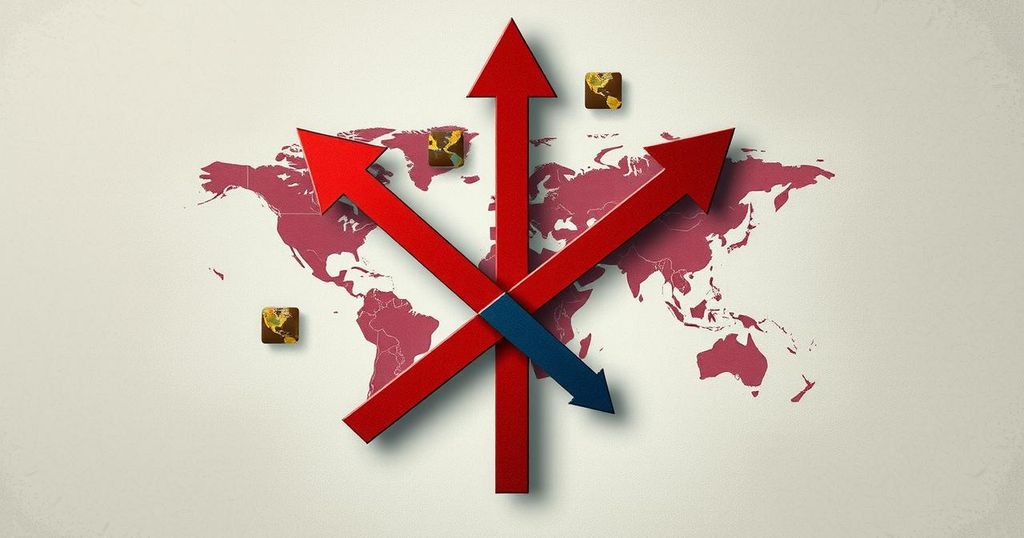Tensions escalate as Rwandan President Paul Kagame reacts to accusations from South African President Cyril Ramaphosa, who claimed Rwanda backs the M23 rebels in the DRC conflict. With South African troops facing casualties, Kagame warns of potential confrontation. Historical conflicts and regional interests complicate the situation, with both nations asserting their positions amid international scrutiny.
Rwandan President Paul Kagame has responded sharply to accusations from South African President Cyril Ramaphosa, who alleged that Rwanda supports the M23 rebels amidst the escalating crisis in the eastern Democratic Republic of Congo. Kagame categorically dismissed these claims as lies and warned of potential confrontation between the nations.
South Africa has deployed troops in the Democratic Republic of Congo as part of a United Nations peacekeeping mission, alongside troops from the Southern African Development Community (SADC) meant to assist local forces in combat against armed groups. However, the recent deaths of 13 South African soldiers in ongoing clashes have intensified scrutiny on South Africa’s military involvement.
In a public statement, Ramaphosa expressed that the M23 and a so-called “Rwandan Defense Force militia” were responsible for the casualties, insisting that offensive actions would not be tolerated. His Minister of Defense, Angie Motshekga, stressed a warning previously issued to the rebels regarding their fire as a potential declaration of war.
This exchange of accusations has escalated diplomatic tensions between Pretoria and Kigali. President Kagame rebutted Ramaphosa’s assertions in an impassioned social media post, clarifying that the Rwandan Defense Force operates independently and asserting that if South Africa chooses confrontation, Rwanda would be prepared to counter.
Kagame further clarified that the South African troops were not merely peacekeepers, but engaged in offensive combat operations in the region. He stated that President Ramaphosa himself had sought discussions concerning these matters, emphasizing the mischaracterization of M23 members being associated with Rwandan nationals.
South African Foreign Minister Ronald Lamola explicitly accused Rwanda of supporting the M23 group, pointing to findings from U.N. experts as evidence. During an African Union meeting, South Africa advocated for an immediate ceasefire and cessation of support to the M23 from all involved parties.
The conflict in eastern Congo, which borders Rwanda, has persisted for over three decades, rooted partly in the aftermath of the 1994 Rwandan genocide. This region has become a complex battleground with the Congolese government alleging Rwanda’s quest for its abundant mineral resources.
The strained relations between Rwanda and South Africa have become particularly pronounced due to accusations regarding Rwanda’s support for the M23 rebel group operating in eastern Congo. Tensions culminated following the deaths of South African soldiers stationed in the region, leading to a war of words between the two leaders. The historical context of this conflict also includes significant regional turmoil linked to the aftermath of the Rwandan genocide and ongoing security threats in eastern Congo.
This diplomatic spat highlights the delicate and complex nature of regional politics surrounding the ongoing conflict in the Democratic Republic of Congo. As both nations navigate this dispute, the repercussions of their military engagements and the accusations levied may further complicate stability and peace efforts in the region.
Original Source: www.voanews.com






